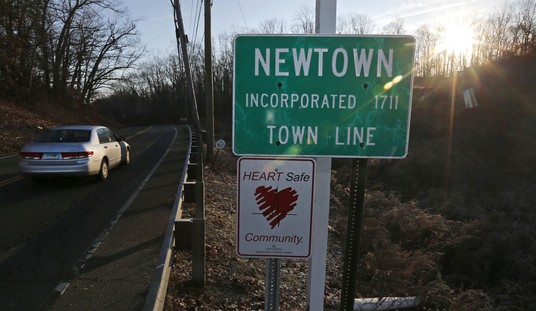The fact that the media is biased against guns isn’t really a surprising fact. Anyone who watches the news in the aftermath of a mass shooting should be able to see it for themselves. Anti-gun voices are interviewed frequently and without any pushback. Pro-gun voices are interviewed either with an anti-gunner or the host themself pushes back. There’s very little effort to appear unbiased.
Yet there are far more ways in which the media lies about guns. In particular, they push a number of myths about guns that people take at face value.
Over at Real Clear Politics, John Lott takes aim at several of these.
Myth 1: Los Angeles Times: “Why the U.S. is No. 1 — in mass shootings”
This claim is based on one study by Adam Lankford at the University of Alabama. Lankford asserted that the U.S. accounted for 31% of mass public shooters from 1966 to 2012, despite having less than 5% of the world population. But for over four years, he refused requests from both academics and media outlets, including Real Clear Politics, Fox News, and the Washington Post, to release his data. When he finally released his list of cases after I had published an academic paper going through the data, it was clear why he had waited so long. He had over-counted cases in the U.S. and missed thousands of others in the rest of the world.
The United States accounted for just 1% of the shooters — far less than its share of the world population. France, Switzerland, Russia, Finland, and Norway all have substantially higher per capita fatality rates than does the U.S. Indeed, France’s rate is 111% higher than ours. By far, the worst mass public shootings have occurred in Europe.
Americans may be surprised by these numbers, because they hear so little about mass shootings in other countries. The dozens of times in recent years that such shootings are stopped by concealed handgun permit holders is also ignored. Something else the news media won’t tell you: Since 1950, 94% of the mass public shootings have occurred in gun-free zones, places where citizens are banned from having guns.
Of course, this is true. I don’t even hear all that much about many of them and I’m someone who makes a living writing about these kinds of things. I want to know about these shootings. The problem is that unless they make the news in the English-speaking world, I generally don’t come across them.
Then, of course, we have one of my favorite myths, one I’ve been battling against for some time.
Myth 3: Guns allow people to kill themselves much more easily.
Vox explains: “Perhaps the reason access to guns so strongly contributes to suicides is that guns are much deadlier than alternatives like cutting and poisons.”
But this gives a very misleading impression of the effectiveness of different suicide methods. A 1995 study looked at 4,117 suicide cases in Los Angeles County and found very high “success” rates for many methods. Taking cyanide, jumping from a height, being hit by a train, or hanging oneself had virtually the same likelihoods of success as a gunshot to the head or shotgun blast to the chest.
There are lots of effective ways for people to commit suicide, and that’s why suicides haven’t decreased when gun bans have been enacted.
And yet, let’s also remember that we’ve seen a massive surge in stories about increased suicides due to the influx of new gun owners. Those stories almost always are predicated on the idea that attempting suicide with a gun is more likely to be “successful” than with other methods. Yet, as Lott points out, many of those other methods are actually pretty likely to be “successful” as well.
I’ve been saying that just because using a gun is the most effective way to end your own life, that doesn’t mean other methods won’t accomplish the same task. Turns out, I was right.
There are others addressed by Lott, but you can go read them for yourself. Addressing these myths is vitally important because so many of them have made it into the public’s mind. People hear them and accept them at face value and they shouldn’t.
For the media, though, they don’t care about reality, just the narrative.







Join the conversation as a VIP Member